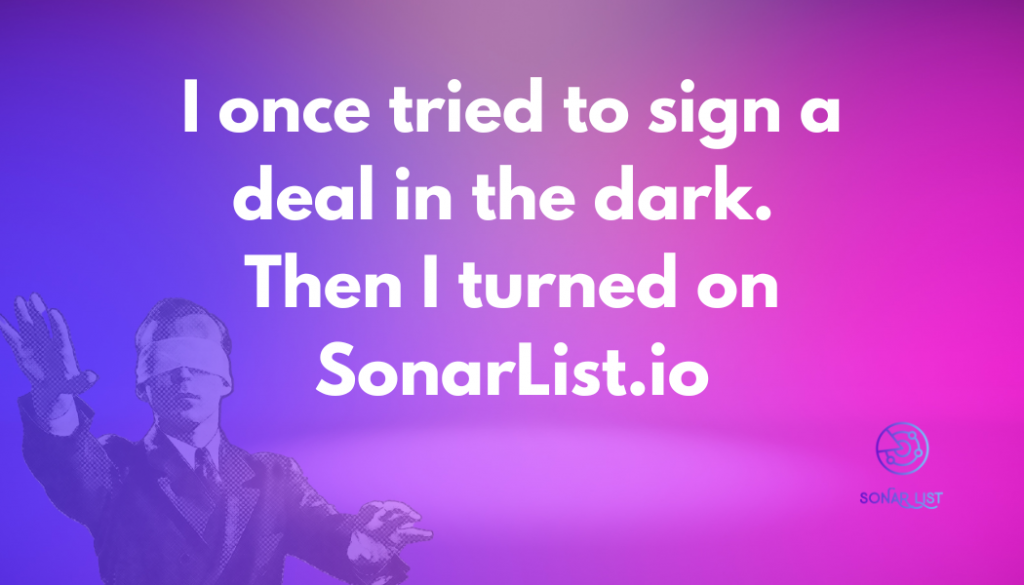Owning a domain grants you the ability to communicate through the digital realm. A company might have a domain name to safeguard its trademarks and copyrights, establish credibility, raise brand recognition, and improve search engine rankings. As the owner of a domain name, it is your responsibility to inform the registrar about the desired destination for incoming requests. Additionally, This is important to ensure that the company’s website or online service is accessible to users when they enter your domain name in their browsers.
Domain-Based Testing
Domain-based testing (DBT) is a technique for creating tests that are based on domain modelling and analysis. Test generation is structured using domain models. Domain testing can Involve a variety of tools and techniques to collect data and find out who owns a domain name. They are; DNS Lookup, Reverse Lookup, and WHOIS. Below is an explanation of these tools.
DNS Lookup
A DNS lookup is a means to obtain all of a particular domain name available on Domain Name System (DNS) records. It can reveal the domain’s resolving Internet Protocol (IP) address or addresses that you specified in your search query. The DNS is often referred to as the phone book of the Internet. Various DNS records, such as the Address(A) Record, MX Record, Nameserver Record, and start of Authority(SOA) record, are checked by a DNS lookup tool or DNS checker like this to find out additional information about or find out who owns a domain name.
Reverse Lookup
The opposite of a DNS lookup is known as a reverse lookup. Users can therefore find the domain name linked to the appropriate IP address by entering it into the reverse lookup tool. Reverse IP lookups are supportive for many things, such as security, troubleshooting, and spotting spam emails.
WHOIS
During the early stages of the internet, WHOIS was developed as a database for the contact details of domain owners. Through the WHOIS protocol, the domain registrar gathered the contact details and made them publicly accessible.
Why Knowing Domain Ownership Matters

Domain ownership enables your brand to be seen. A good domain will create awareness and attract customers. establishes your company as technologically proficient and innovative. Whether you sell goods online or not, staking out your internet presence is essential for maintaining your reputation. Because they are how people find your website, domain names are crucial. The online address that users type into their browser to access your site is known as a domain name. A domain name is the web address people type into their browser to visit your site. For example, SonarList’s domain name is https://sonarlist.io/
Business Acquisition
Acquisitions broaden the purchasing company’s consumer base and market penetration, which may also result in more revenue. An acquisition could be essential to oversee an expansion in your company and encourage sales growth. An established internet presence for a domain can bring in a lot of traffic and potential clients. Owning the domain linked to a company’s website aids in preserving its property rights. by stopping others from misusing or developing a brand identity.
Investigative Journalism
This kind of reporting involves reporters delving deeply into a particular area of interest, including serious crimes, public corruption, or business misconduct. In-depth research and analysis are used in investigative journalism to find mischief. Investigative reporting reveals details of a company attempting to appropriate intellectual property from another company. Investigative journalism’s task is to hold these institutions or groups accountable for their actions.
Significantly, domain ownership is heavily influenced by investigative journalism. Investigative journalists may run upon dubious or contentious topics while conducting their research.
Legal Dispute
The owner of a domain name is the person or entity listed as being authorized to make or request changes to be made in certain information related to a domain name. It is crucial to not only know who the registrant is but also who has administrative, billing, and technical rights related to any given domain. A domain name dispute is a legal complaint made because a domain name has been inappropriately and illegitimately used or assigned.
In other words, Conflicts regarding the ownership of a domain name may result in litigation. When different parties assert ownership of the same domain, disputes may arise. There are many causes for legal conflicts, but cyber-squatting and trademark infringement are the most frequent ones in domain ownership disputes.
The Basics Of Domain Registration

Domain registration includes choosing a distinctive domain name, verifying its availability, and registering it with a domain registrar. This involves providing contact details and completing the registration fee payment. After successful registration, you gain ownership of the domain name.
Understanding The Domain Name System (DNS)
The Domain Name System (DNS) can be referred to as the phonebook of the Internet. Humans access information online through domain names like Sonarlist.io and Internet Protocol (IP) addresses are used by web browsers to communicate. For browsers to load Internet resources, DNS converts domain names to IP addresses. DNS is essential for allowing people to access websites and other internet services by typing simple domain names rather than long URLs.
What is Sonarlist.io and Why It’s Your First Stop
Sonarlist.io is a powerful business tool. It is easy to use and the data is broad enough to be a great asset to your agency. SonarList.Io has been designed for easy access so that a person starting on the web can use it without difficulty. It’s easy to use and the data is readable. Sonarlist.io provides vital information on a website using its domain name.
Privacy and Protection in Domain Ownership
While finding out who owns a domain name is often straightforward, thanks to WHOIS databases, domain owners sometimes have legitimate reasons to keep their personal information private. Privacy concerns are especially relevant in an age where data is highly valuable and personal information can be misused.
Why Privacy Matters
- Personal Safety: Individuals may hide their domain ownership details, making it challenging for others to find out who owns a domain name to ensure their safety.
- Spam Reduction: Publicly listed contact information can lead to an increase in spam and unsolicited contacts.
- Professional Image: Businesses may prefer to keep certain details private to maintain a professional image or prevent direct contact that bypasses their established support or contact channels.
How to Maintain Privacy
- Privacy Services: Domain owners can maintain their privacy and comply with legal requirements. However, it may be harder to find out who owns a domain name.
- Private Registration: When registering a domain, you can opt for private registration, where the registrar keeps your information confidential and out of the public WHOIS database.
- Legal Entities: Registering a domain under a business or legal entity rather than a personal name can provide a layer of privacy while still complying with legal requirements.
Implications of Privacy Services
- Accessibility: Those needing to find out who owns a domain name may face difficulties when the owner uses privacy services, such as domain purchase inquiries or legal issues.
- Trust and Transparency: Some users may view private registrations suspiciously, preferring transparency in business dealings, especially in B2B relationships.
- Compliance with Policies: Domain owners must ensure that their use of privacy services complies with the policies of their registrar and the laws of their country, as some TLDs (Top-Level Domains) have specific requirements for disclosure.
Navigating WHOIS with Privacy Services
- Contacting Owners: Privacy services may provide a means to get the domain owner, even if they make it harder to find out who owns a domain name directly.
- Investigative Challenges: Journalists and investigators may face additional hurdles when researching domain ownership, as privacy services can obscure the true owner’s identity.
- Legal Processes: In cases of legal disputes, courts can require the privacy service to disclose the owner’s information through due process.
While privacy in domain ownership is crucial for many, it is balanced by the need for transparency and accountability on the Internet. Domain owners should carefully consider their privacy options and the potential implications of using privacy services.
By understanding and navigating these privacy aspects, domain owners can better protect their information while maintaining the integrity and accessibility of their online presence.
Legal Aspects of Domain Ownership and Dispute Resolution
Understanding legal aspects is crucial, especially when you need to find out who owns a domain name during a dispute. Domain names are more than just addresses for websites; they are assets that can be subject to disputes and require legal protection.
Here’s what you need to know:
Trademark and Domain Name Conflicts
- Domain names identical or confusingly similar to a trademark or service mark may lead to a legal dispute.
- Trademark owners can challenge domain registrations through legal action if they believe their trademark rights have been infringed.
Cybersquatting and the Anticybersquatting Consumer Protection Act (ACPA)
- Cybersquatting involves registering, trafficking in, or using a domain name with bad faith intent to profit from the goodwill of a trademark belonging to someone else.
- The ACPA is an important tool for those who need to find out who owns a domain name that may be infringing on their trademark.
The Role of ICANN and the Uniform Domain-Name Dispute-Resolution Policy (UDRP)
- The Internet Corporation for Assigned Names and Numbers (ICANN) is a nonprofit organization responsible for coordinating the maintenance and procedures of several databases related to the namespaces of the Internet.
- ICANN implements the Uniform Domain-Name Dispute-Resolution Policy (UDRP), which is a way to resolve disputes arising from the abusive registration of domain names (e.g., cybersquatting).
- Under the UDRP, trademark owners can initiate a case against a domain name registrant to resolve issues of trademark infringement and cybersquatting without going to court.
How to Handle Domain Disputes Legally
- Cease and Desist Letter: Initially, a cease and desist letter may be sent to the alleged infringing party, requesting voluntary domain transfer and cessation of the infringing use.
- Negotiation: Parties may negotiate to reach a settlement involving the transfer of the domain name and compensation.
- UDRP Proceedings: If negotiation fails, trademark owners can file a complaint under the UDRP. This process is faster and less expensive than litigation and is conducted online.
- Court Litigation: As a last resort, parties may take the dispute to court under the ACPA or other relevant laws, depending on the jurisdiction.
ICANN’s Dispute Resolution Service Providers
- Several organizations have been approved by ICANN to provide dispute resolution services under the UDRP, including the World Intellectual Property Organization (WIPO) and the National Arbitration Forum (NAF).
Preventive Measures
- Register trademarks and use them in commerce to establish rights.
- Register domain names that are important to your brand proactively.
- Monitor domain registrations to detect potential infringements early.
Navigating the legal landscape of domain ownership is essential for protecting your digital assets. By understanding your rights and the mechanisms for resolving disputes, you can more effectively safeguard your brand and address potential conflicts. Always consider consulting with a legal professional specializing in intellectual property and Internet law to get tailored advice for your specific situation.
Cybersecurity Implications of Domain Ownership
Identifying cybersecurity threats often begins with efforts to find out who owns a domain name linked to malicious activities. Domain ownership information can be exploited by malicious actors in several ways, posing risks to the domain owner and the general public.
1. Domain Hijacking: Cybercriminals can use stolen personal information to transfer domain ownership illegally. This allows them to redirect traffic to malicious sites, potentially deploying malware or conducting phishing attacks.
2. Phishing Scams: By impersonating domain owners using harvested WHOIS data, attackers can create convincing phishing campaigns. They can contact the domain owner’s associates, pretending to be the legitimate owner, and spread malware or solicit sensitive information.
3. Spamming: Access to domain owner details enables spammers to target domain owners with unsolicited and potentially harmful content.
4. Identity Theft: Personal information available through domain records can be used to steal identities, leading to various fraudulent activities.
5. Doxing: Publicly available information can lead to doxing, where individuals’ private information is publicly disclosed, leading to harassment or harm.
6. Brand Impersonation: Cybercriminals can use the information to create counterfeit websites or domains with slight variations in spelling (typosquatting), tricking users into believing they’re visiting the official site.
7. Ransomware and Blackmail: If a domain is particularly valuable, cybercriminals might threaten to compromise or transfer the domain unless a ransom is paid.
Mitigation Strategies
One of the strategies to protect domain ownership information includes making it difficult for unauthorized parties to find out who owns a domain name.
Here are other strategies:
- Privacy Protection Services: Domain owners can use privacy protection services offered by many registrars to hide their personal information from the public WHOIS database.
- Regular Monitoring: Domain owners should monitor their domain’s WHOIS records regularly for any unauthorized changes.
- Strong Authentication: Implementing strong authentication methods for accessing domain registrar accounts can prevent unauthorized changes.
- Legal Protections: Understanding the legal protections and processes available in case of domain-related cybercrime is crucial for quick response and resolution.
The digital identity encapsulated in a domain name is a valuable asset that needs safeguarding. As much as domain ownership transparency is vital for business and legal dealings, it is equally important to protect this information from misuse.
By taking proactive cybersecurity measures, domain owners can significantly reduce the risks associated with domain ownership information being publicly accessible.
Recent Policy Updates Affecting Domain Ownership Lookups
Policy updates can change how one might find out who owns a domain name, affecting transparency and privacy.
Here are some recent updates that could impact how you find out who owns a domain name:
1. Implementation of GDPR
The General Data Protection Regulation (GDPR) in the European Union has significantly impacted WHOIS. Registrars can no longer publicly display the personal information of domain owners without their explicit consent. This means that for many domains, particularly those owned by individuals within the EU, WHOIS lookups will not display the owner’s contact information.
2. ICANN’s Temporary Specification
In response to GDPR, the Internet Corporation for Assigned Names and Numbers (ICANN) adopted a Temporary Specification for gTLD Registration Data. This specification allows for the continued collection of domain registrant data while protecting the privacy of individuals. It also provides a framework for requesting access to this data for legitimate purposes.
3. Redaction of Personal Data
Many domain registrars now redact personal information from the WHOIS records they publish. This is to comply with privacy laws and protect domain owners from spam and potential abuse. However, they must provide a way for interested parties to contact the domain owner, often through an anonymized email or a web form.
4. Rise of Privacy Services
Many domain owners now use privacy services offered by registrars to shield their personal information. These services replace the owner’s contact information with that of a proxy service in WHOIS lookups. While this is beneficial for privacy, it adds an extra step for those trying to find the owner of a domain.
5. Changes in Domain Dispute Policies
There have been discussions about updating policies related to domain disputes, including trademark infringement and cybersquatting. Any policy changes could affect how disputes over domain ownership are resolved.
6. Expansion of Top-Level Domains (TLDs)
ICANN has continued to expand the number of available TLDs. This expansion can affect domain ownership lookups as each TLD may have different registries and potentially various lookup tools and policies.
7. Enhanced Verification Processes
Some registrars have implemented more stringent verification processes to combat fraud and misuse of domain registration. This may affect the speed and ease of registering and transferring domain ownership.
8. Public Interest Commitment (PIC) Dispute Resolution Procedure
ICANN has introduced a PIC Dispute Resolution Procedure that allows third parties to file complaints about how a registry operates a TLD concerning its stated public interest commitments.
By staying informed about these changes, you can better navigate the complexities of domain ownership lookups. It’s also advisable to regularly check for updates from ICANN and other regulatory bodies as policies continue to evolve.
Impact of Domain Ownership and History on SEO
Part of assessing a domain’s value for SEO includes understanding how to find out who owns a domain name and its historical use. Understanding this impact is crucial for anyone looking to acquire a domain with a legacy.
Here’s why:
- Search Engine Trust: Search engines like Google place trust in domains that have been around for a longer time. A domain with a clean history and a consistent record of providing quality content may have an easier time ranking.
- Backlink Profile: The existing backlink profile of a domain is a double-edged sword. A rich profile with high-quality links can give you a head start in SEO. However, a history of spammy links can harm your efforts and may require a clean-up before you can benefit from the domain.
- Domain Authority: Domains that have been active and reputable have likely built up authority. This authority can be passed on to you as the new owner, giving you an advantage in SEO rankings.
- Indexed Pages: If the domain has a history of indexed pages, it can be beneficial as it shows search engines that the domain has been a resource for information over time. However, if the indexed pages were of low quality, it could hurt your SEO.
- Penalties: It’s important to check if the domain has been penalized by search engines in the past. Acquiring a domain that has been penalized can be detrimental to your SEO efforts, as the recovery process can be long and arduous.
Considerations When Buying a Domain with a Legacy
Before purchasing a domain with a history, consider the following steps to ensure it will positively impact your SEO:
- Perform a Thorough Background Check: Use tools like the Wayback Machine to view the domain’s history and ensure it has been used in good faith.
- Analyze the Backlink Profile: Tools such as Ahrefs or Moz can help you assess the quality of the domain’s backlink profile.
- Check for Penalties: Use Google’s Search Console to check for any manual actions against the domain.
- Assess Domain Authority: Review the domain’s authority score through SEO tools to gauge its standing.
- Review the WHOIS History: Investigate the domain’s ownership history to look for any red flags or patterns of malicious use.
- Understand the Domain’s Content History: Ensure the domain’s past content aligns with your current or intended niche to avoid confusion for search engines and users.
By taking these factors into account, you can make an informed decision when acquiring a domain with a history and leverage its legacy to boost your SEO efforts.
Best Practices for Managing Domain Portfolios
Part of managing a domain portfolio includes knowing how to find out who owns a domain name ensuring proper domain management and protection.
Here are some best practices to consider:
- Consolidate Your Domains: Keep all your domain registrations under a single registrar when possible. This simplifies management and renewal processes.
- Regular Audits: Conduct regular audits of your domain portfolio. Verify that contact information is up-to-date and that you still need all the domains you own.
- Renewal Strategies:
- Auto-Renewal: Enable auto-renewal for your critical domain names to avoid accidental expirations.
- Long-Term Registration: Consider registering your most important domains for several years to protect against inadvertent lapses and potential price increases.
- Renewal Reminders: Set up multiple reminders ahead of your domain expiration dates to ensure you have ample time to renew.
- Security Tips:
- Registrar Lock: Use registrar lock features to prevent unauthorized transfers of your domain names.
- Two-Factor Authentication: Enable two-factor authentication for your registrar account to add an extra layer of security.
- Privacy Protection Services: Use privacy protection services to hide your contact information from the public WHOIS database to prevent spam and protect against identity theft.
- Record-Keeping:
- Documentation: Keep thorough records of purchase dates, renewal dates, and any transfers or changes to your domain names.
- Access Control: Maintain a secure list of who within your organization has access to your domain accounts and what level of access they have.
- Receipts and Correspondence: Save all receipts, correspondence, and documentation related to your domain registrations and renewals.
- Legal Protection:
- Trademark Your Domain Name: If your domain name is central to your brand, consider trademarking it to provide additional legal protection.
- Monitor for Infringement: Regularly monitor for unauthorized use of your domain or similar names that could cause confusion.
- Dispute Readiness:
- Understand the UDRP: Familiarize yourself with the Uniform Domain-Name Dispute-Resolution Policy (UDRP) if you need to challenge or defend against claims.
- Legal Support: Have legal support familiar with Internet law and ready to assist if disputes arise.
- Strategic Acquisitions:
- Acquire Related Domains: Consider acquiring common misspellings of your domain, different TLDs (.com, .net, .org), and negative domains to prevent misuse.
- Assess Value for Resale: If you plan to sell a domain, assess its market value carefully and consider using a broker for high-value domains.
- Succession Planning:
- Establish a Succession Plan: Ensure a clear plan for who will manage the domain portfolio in the event of changes in personnel or company structure.
By implementing these best practices, businesses can maintain control over their domain portfolios, enhance security, and ensure their online presence remains uninterrupted.
Conclusion
Domain ownership helps secure your domain by preventing unauthorized domain actions. Domain ownership is important because it helps find out who owns a Domain Name. Domain names are important because they are how people find your website.
Domain ownership provides visibility for your brand or company. A person acquires ownership of a domain name once they have legitimately registered it and provided all necessary personal data to a recognized registrar. They hold sole ownership of that domain name and are free to sell it whenever they want. In conclusion, Protect your brand, verify legitimacy, resolve disputes, and plan for the future.



